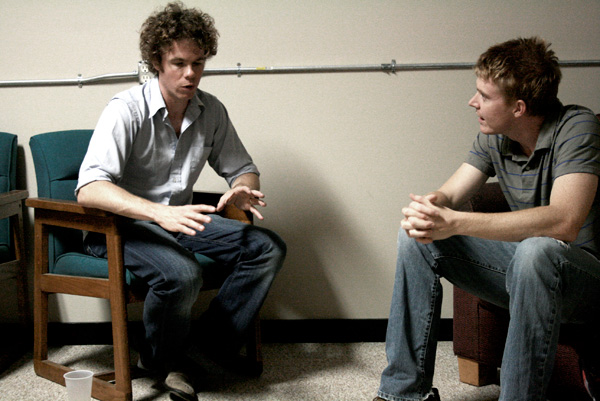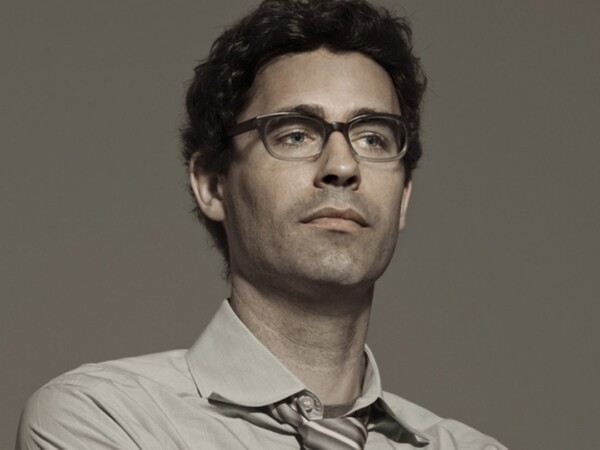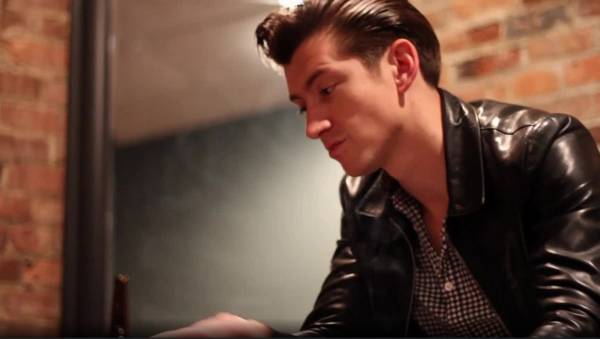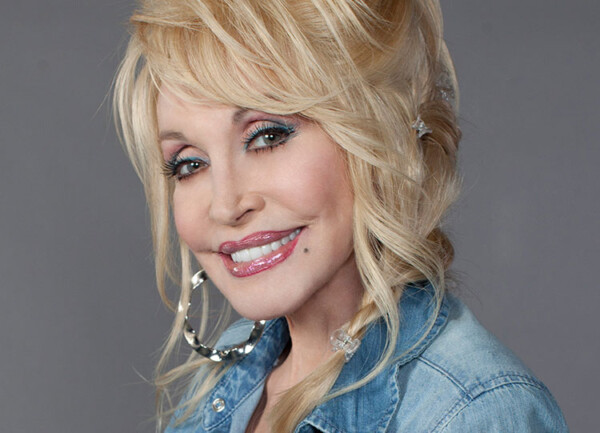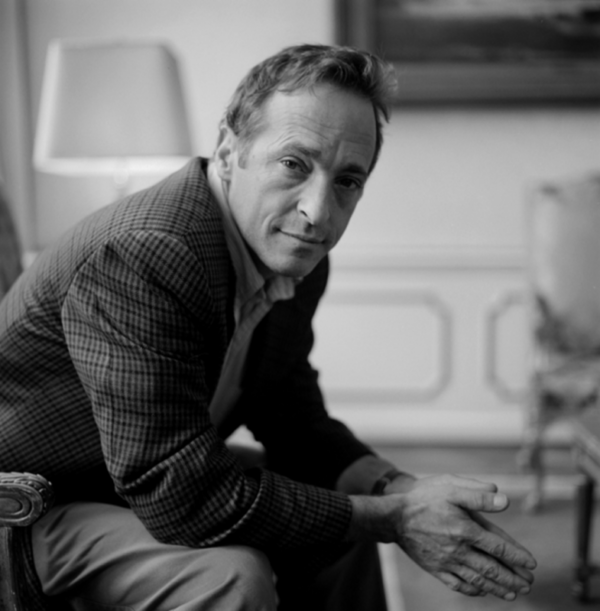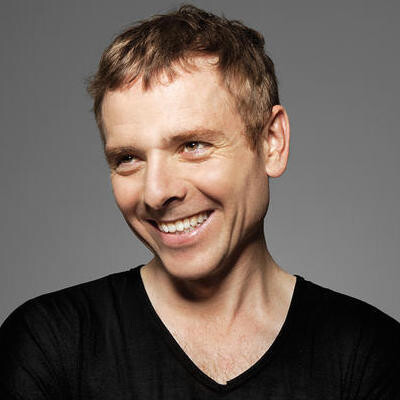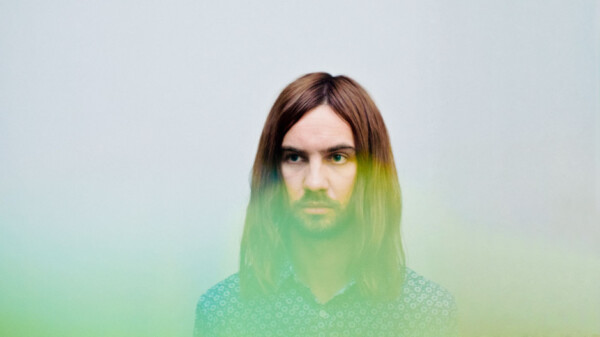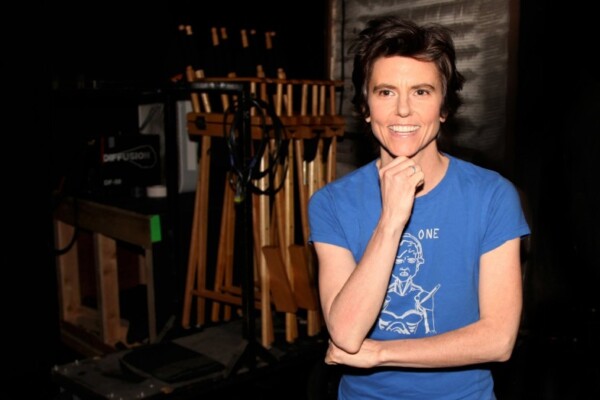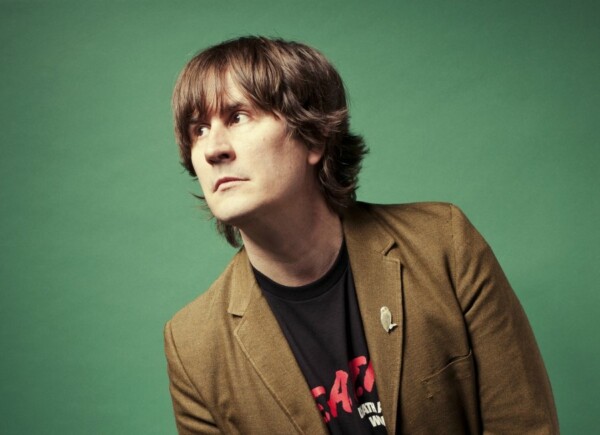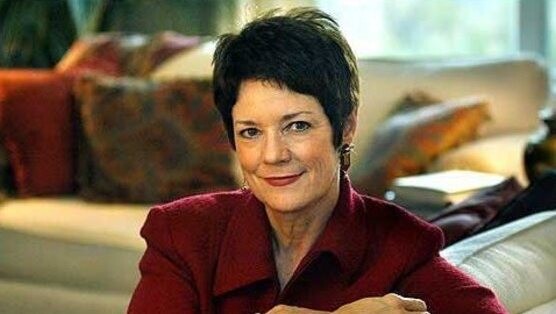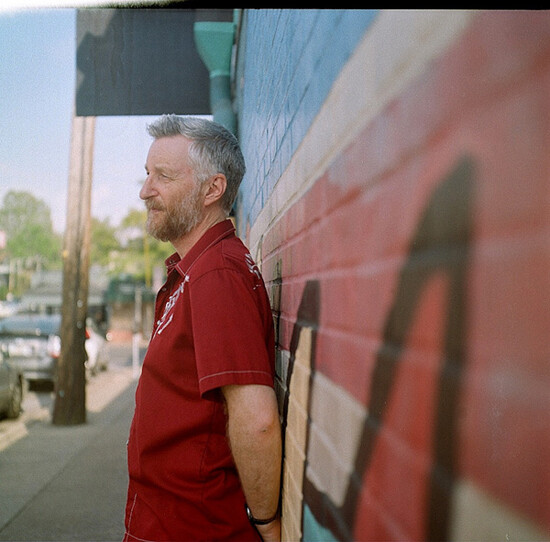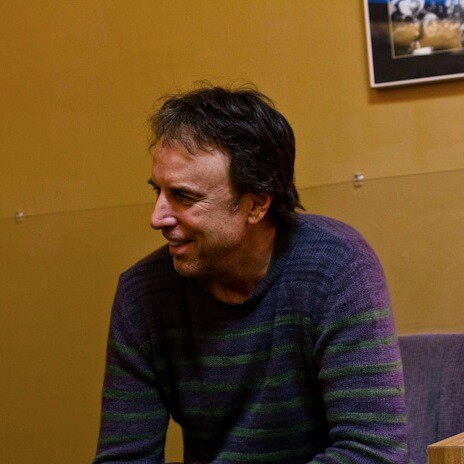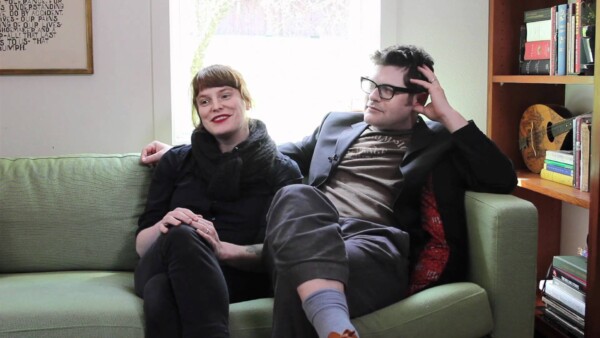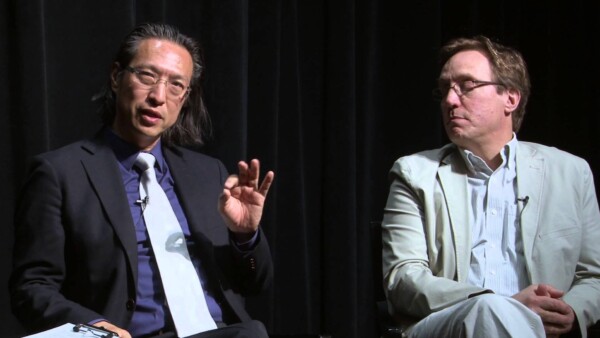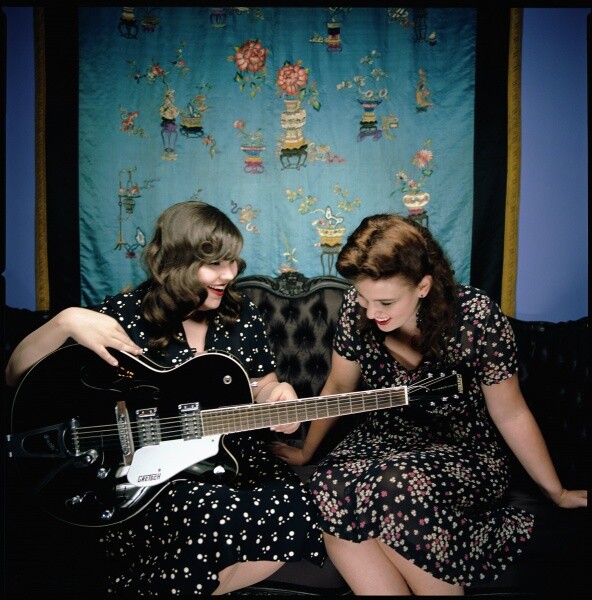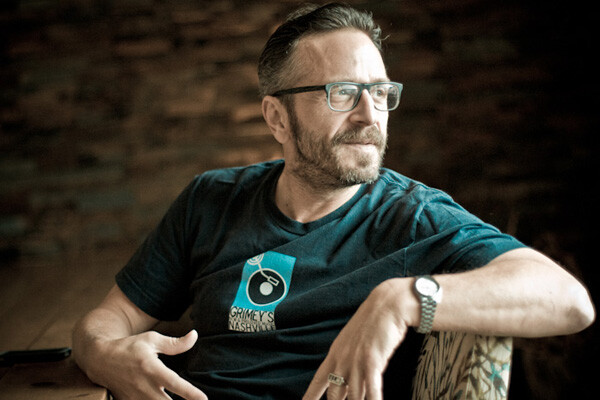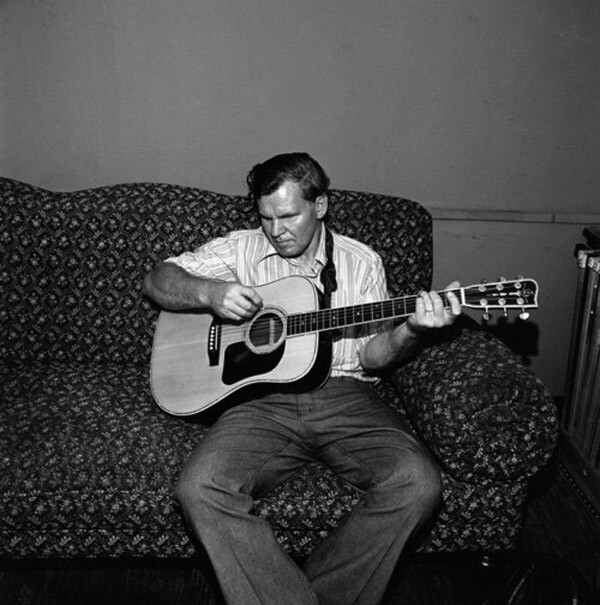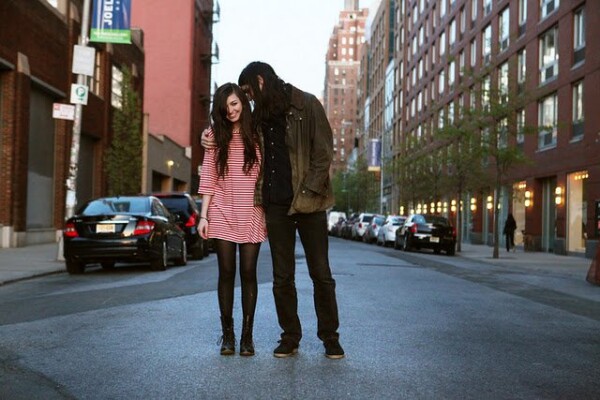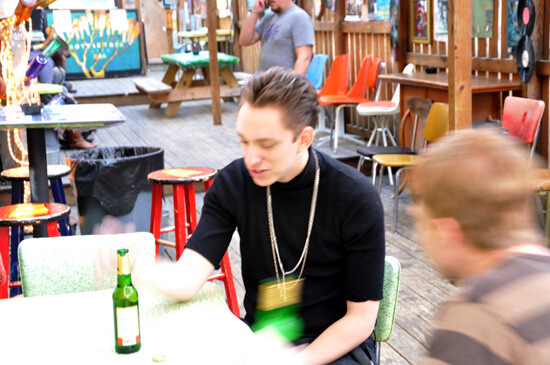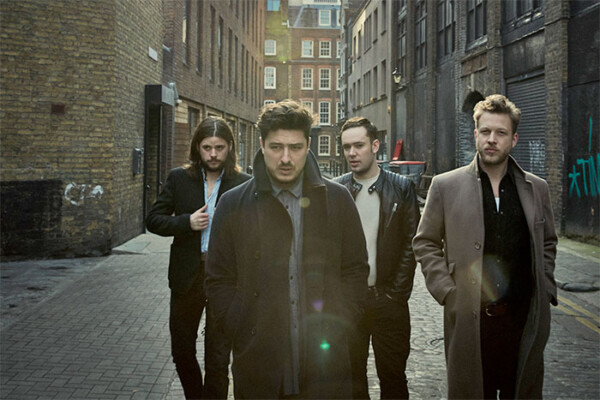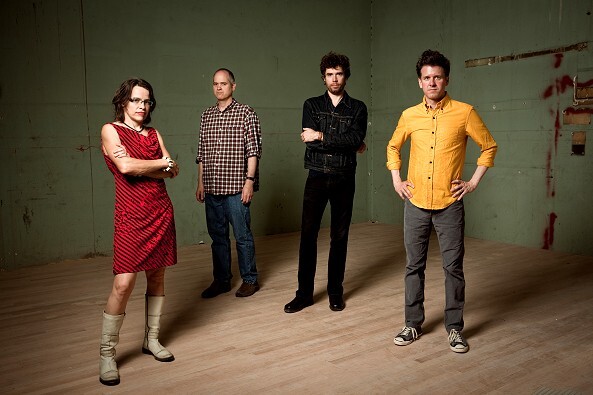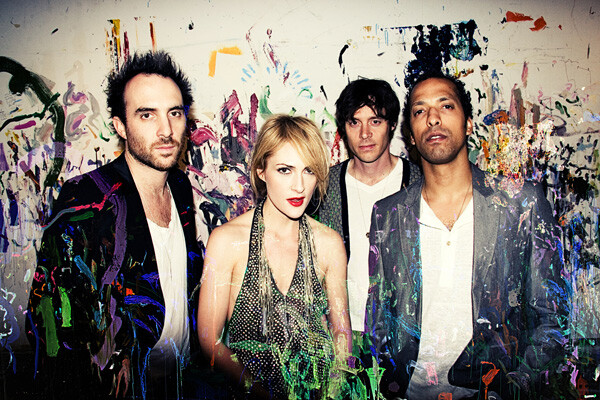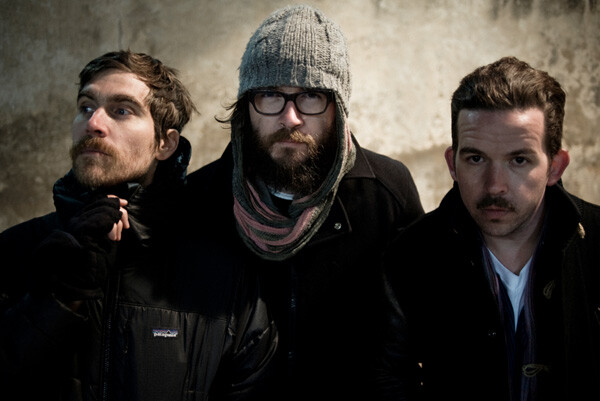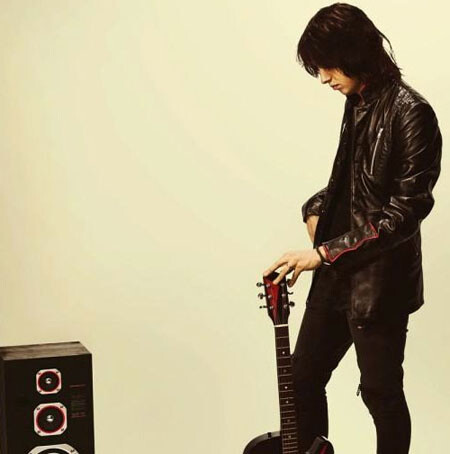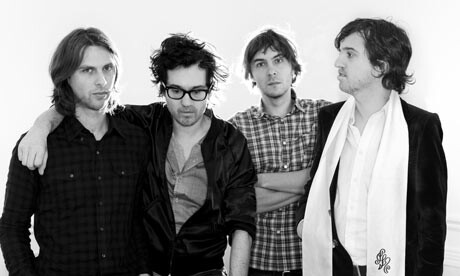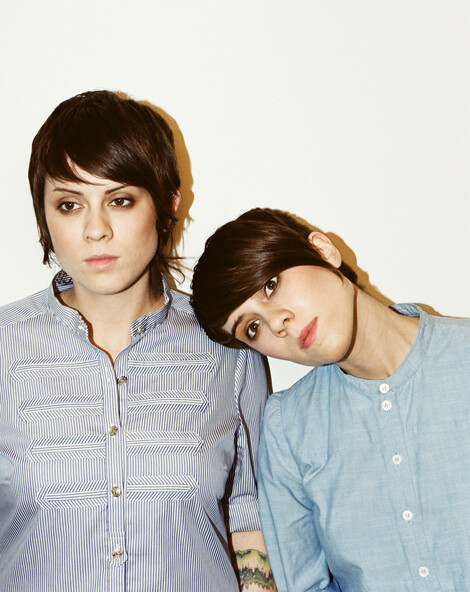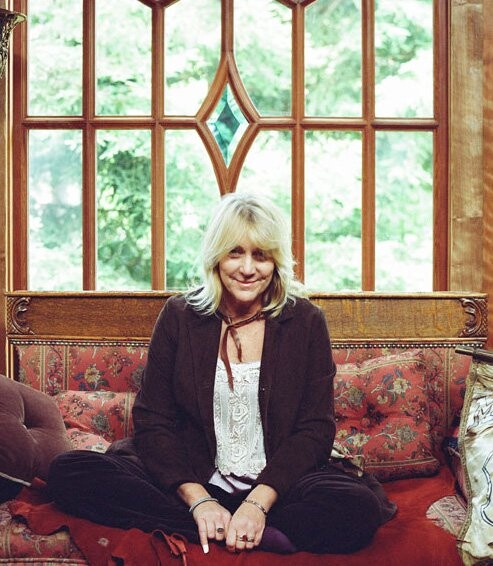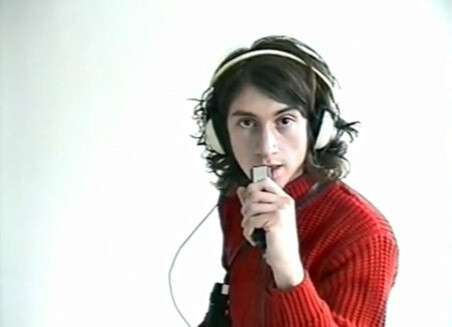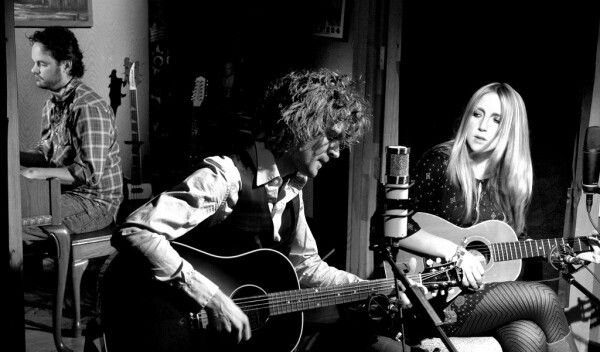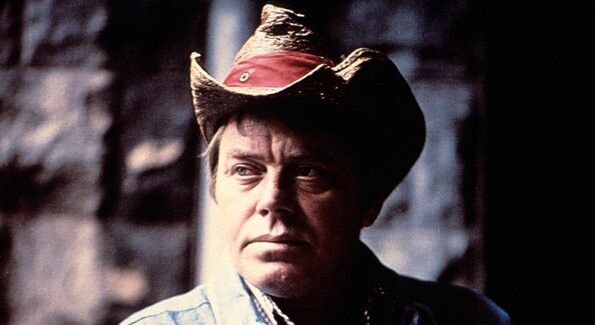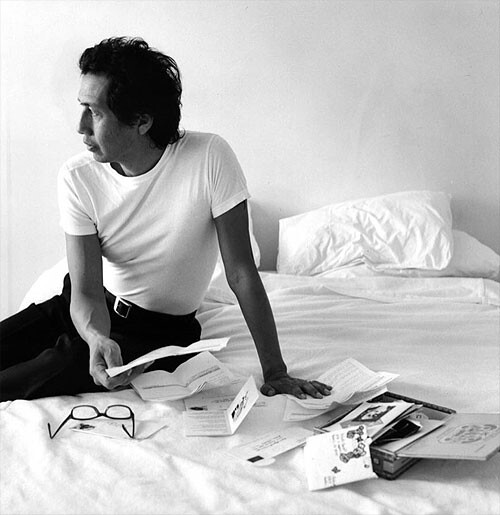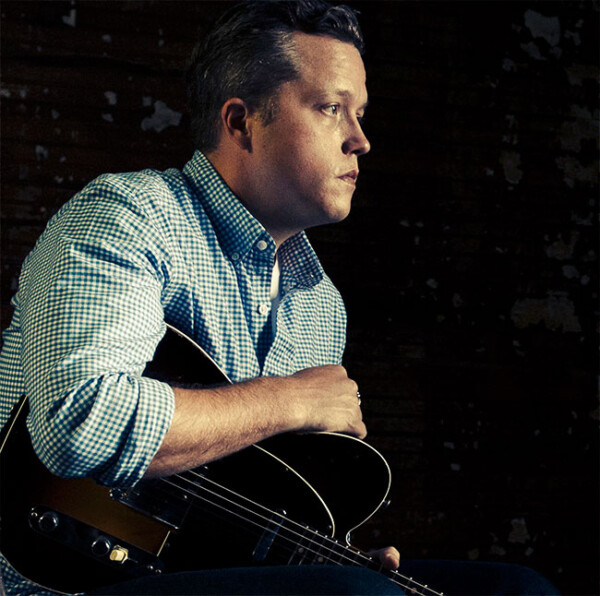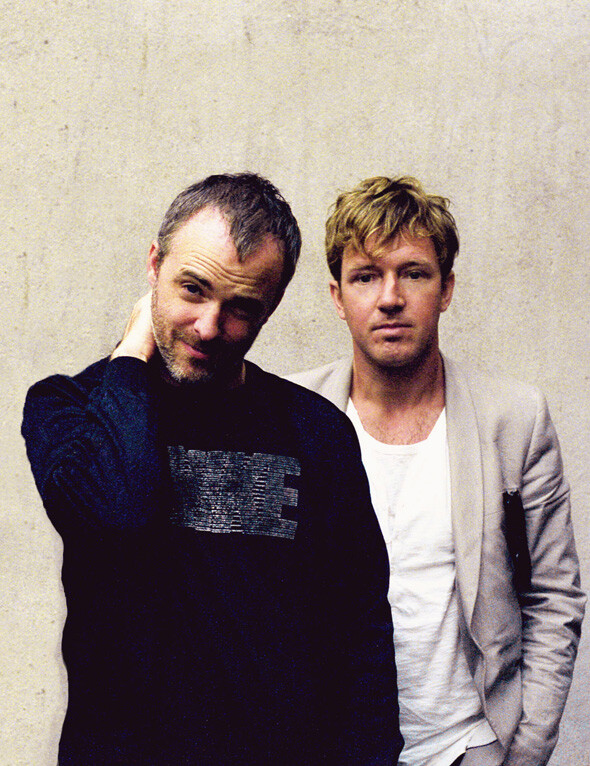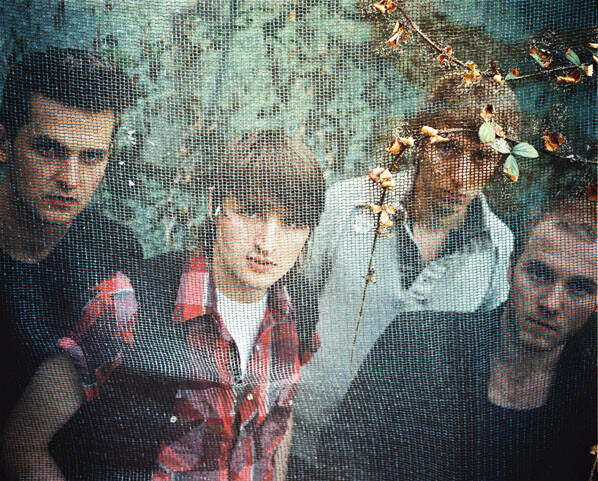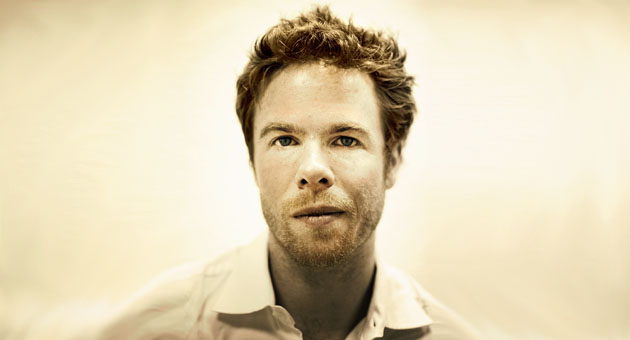
Skip Matheny— currently a songwriter in the band Roman Candle and former bartender in a retirement community, was recently able to catch up with songwriter and author, Josh Ritter, to talk about his creative process, among other things. Josh recently published his first novel Bright’s Passage which has been hailed by former U.S. Poet Laureate, Robert Pinsky, as well as Stephen King (who actually reviewed the book for the NY Times). Bright’s Passage is available in paperback, hardback as well as an unabridged audiobook. For all Nashvillians, Josh is also playing at Mercy Lounge on Monday July 30 with a full band.

Skip’s note: This was easily one of my favorite chats we’ve had the opportunity to do in this series. Josh Ritter is one of the most ‘natural’ writers I’ve encountered. He’s read a lot of books and uses some great literary references in his records, but the songs always work independently, without requiring a listener to have some pre-existing experience with any particular book. Though we do always try to do these interviews in person, we don’t always have some relaxed environment available in which we can sit around and have a drink. This chat however took place at the Cannery Ballroom after their soundcheck and we were able to sit around with plenty of time, and drink bourbon out of whatever cups we could find behind the bar.
What’s your favorite drink?
[holds up a plastic cup of bourbon] This is getting pretty high on the list right here, just straight bourbon. I always think that scotch has got this cool austerity, like black and white static, and then bourbon has a real warm, technicolor, Disney feel to it. Swiss Family Robinson [laughs]. This is about as good as it gets. Scotch, close second.
Walker Percy says that the taste of scotch is like looking a a picture of Noel Coward (laughs). Which is funny I actually like Noel Coward. Have you read his bourbon essay?
Wow, no. I will have to check that out.
It came out in Esquire I think in the ’80s.
I actually wrote a thing on drinks for Esquire, about all the liquors that nobody wants to use, you know? They made me a bunch of drinks using everything from the back of bar. It was really fun, all the weird bitters.
Flannery O’Connor was famous for saying that in order to be a writer you actually need to have a ‘knack’ for it. Was there some time in your life when you wrote something and looked at it and thought, “This might be something I may be good at. I want to follow this.”
I guess I just never thought that I couldn’t do it. The simplicity of it just seemed so beautiful. It was just elegant. It was like a game and once you realize anything is a game, or if you conceive something as a game, then it’s something you have a knack for. You know like mathematics for my brother. It’s just a game for him. It’s easy for him. For me it was songs. [When I started] I wasn’t thinking about whether they were any good or not. It was just really fun. And it still is when you are really getting into it, you know that feeling, trying to fit the thing you want to say– or trying to figure out something new, or think about life differently because you are trying to fit it in a song. Most of the things I ever remember are kind of aphorisms in verse, from a song. To me it always seems like a game trying to get a truth, or something, some realization into a rhyme.
I think that’s apparent in your writing. Your songs seem to have threads that the listener can follow which always kind of move together to convey one thing. Some of them might be a narrative which is easy to follow and some of them might be shadier, dreamier parts where the listener is not getting the whole picture. Maybe it reveals itself over time, but all of these things seem to be working together to to push towards some idea or notion.
There’s a thing with a lot of songs where you have a moment you are trying to describe, like a good love song being a single moment you are trying to describe as opposed to the whole arc of a relationship. It’s like you are getting postcards. An image has to stand for a whole lot. And that is why it’s so much fun. You know those single postcard images are so much fun to think of. I always think when you are writing a song it’s like you are constructing a hallway. That’s all you are doing. And it’s really simple. It even looks like a hallway on the page. Off to the sides are doorways leading down and down. And you are building the hallway and people go down the hall and decide to go through and to whatever door they go out of. Whatever it is, it’s always better than what you had in mind.
I love the section in Hamlet from which you picked your last album title, because it’s one of the most loaded artistic moments of literature I can think of anywhere. It’s at the beginning of a scene where Hamlet is instructing these actors how to act and there’s all this talk about the marriage of word and action, and then there’s the big moment where (The King) Claudius runs out on the play because the players are acting out a murder he’s secretly committed, and Hamlet says in this seemingly offhand way “So runs the world away.” As a songwriter if you are constructing a hallway for the listener, there’s a lot of doors to walk though in that one, even for the whole record.
Yeah it’s true. It’s really true. And however you interpret the song or whatever place in a song, it says more about you. I definitely feel like there have been times when I wrote songs about things before I realized what they really were. What it really was. You write about heartbreak and you think you know about it. Then you have it. And you realize you’ve been carrying a loaded gun with you forever (laughs). It’s just been in your pocket. And then you think “I thought I knew what this was, but (pauses) this is heavy. And I love that scene so much. it’s such a beautiful, cool moment, because he has made this play, he;s written the play and the whole time he is watching his audience. He’s not really taking in pleasure in this play that he wrote, It’s really crazy.
And I’m not sure why, but in the moment where he actually says your album title, if you think in terms of the meter, he slips into the ballad form for just those four lines, and then moves right back into regular conversation.
[laughs] Yeah it’s as if there are no rules at work.
There are several references to literature in your songs especially on the most recent record, and they all seem to carry different weights. Like in Another New World, the character in there reminds me of the character in Mary Shelly’s Frankenstein.
Yeah yeah at the very end.
And then there’s the Edgar Allan Poe poem Annabel Lee which is a tragic love poem between two people, and here, the name the ship in the song is Annabel Lee. And there’s this profound love between the character and this ship, this thing which allows him to go places and discover things. When you are working with certain references do they pop out at first and then you sort of vet them out? “Does this work, is this a world I want to bring into this song? How does that develop for you?
Both of my parents being neuroscientists, they kind of impressed on my brother and me, that no matter what it is you are trying to do, your brain is going to chew over things before you ever think you’ve got it. You know, everything is going on in your head before you know it’s there. So with a poem like Annabel Lee, I was vaguely familiar with that poem, but it wasn’t in my head really until I was done with the song Another New World. And then I realized it worked in a way, with Poe. But I did have the image of Frankenstein’s monster on the ice floe, and out there alone, quiet, and how desperate that must be. It’s an interesting thing about why we have so many stories about people’s obsession with the ocean. There’s so many whether it’s Moby Dick, or the Rime of the Ancient Mariner, or Robert Louis Stevenson, or Robert Service, or Jack London, all these crazy stories. So I really don’t think about it too closely until it comes out, because there’s no real point. It’s going to come out in its own way, and it will be way better. That’s why I don’t really like concept records very much because it doesn’t do justice to your head to think of all the crazy things that just come out anyway. When you make a record in a space of time, like in a year or five months or in a couple weeks, whatever you are thinking about then – that’s is what is going to be on the record really.
Wow. I couldn’t agree more but I think you probably said it better than I had imagined it. I read an essay one time that took apart a Shakespeare sonnet and showed the meticulous and super-refined symmetry he used within each lines. It was unreal — constructed with the detail of some gothic church. And the only punchline you can come up with is to say, either Shakespeare was just the greatest genius who ever lived, or, your brain has more thing going on at the time of creation than you are aware of.
Exactly and I feel like that’s the beautiful thing about it. I feel like the people who really write and, you can tell they love it, it’s not like they know anything more than anybody else, it’s just interesting to see what comes out. It’s more fun that way. All the cliches we have are because people came up with these little things just by chance. When you start out writing , any type of writing, you just kind of set out across the page. Sometimes you have an idea of what you are going to find, and sometimes you don’t. I think the same for making a record or anything where you are creating something. You have no idea. Thank goodness, you know, that you don’t. Because if you knew what you were going to create you probably wouldn’t create it.
[Laughs] Yeah there is no relationship with mystery there. Is your relationship to a blank page now, roughly the same roughly when you were writing when you were young? Is it the same kind of game for you that you described earlier?
I think so yeah. Early on there were records. There were things that my parents introduced me too. Sergeant Peppers being one and Graceland being another. [My parents said] “Now check this out. This is really interesting.” And they did that so seldom that it really made an impression. But music to me was always cartoons [back then]. It seemed like people, but they weren’t real. Like the Oak Ridge Boys weren’t real. They were a thing. Like Scooby Doo or something. And then when I heard real music, and when I heard music where the warts were still on it — it was like — you could see the format. You could see the thing that people were doing. Like Johnny Cash. It didn’t have to be big. Or when Full Moon Fever came out and I heard it for the first time. I thought, “Wow it makes sense and it’s simple and it’s beautiful, and it’s like a crossword puzzle, or something. It’s a game.” And you could just hear that it was a game. Even before that I always loved that stuff and we didn’t have much TV at all, or radio, so we’d just read books and that was it. Also I was raised Lutheran and the Lutheran history goes back to Bach, and it’s all quatrains. Everything is a quatrain. The melody supports a quatrain. I don’t know if I would have ever ended up writing unless I had gone to Sunday school every year until I was the tallest kid in the Sunday school class.
Luther wrote some great quatrains.
Yeah the stuff about the devil’s music and ‘why does the devil have the best music?’ – it’s not always true.
Who are some lyricists that you come back to quite a bit and say “Wow this guy can do it.”
Well I think there are lyricists who just ‘wow’ me. And there are lyricists who I believe. I’m wowed my Stephen Merritt. I think he’s an amazing writer. But in terms of writers I believe. I love Thom Yorke. I love Lupe Fiasco. I love Jay-Z. I just think he’s the cream of the crop. Joanna Newsom, that Milk-Eyed Mender record. People who just seem like they are not aiming for a target. Or maybe they are aiming for a target, like Jay-Z, and it’s like “That is awesome because you just totally hit the target.” (laughs) Then there’s people who I will buy whatever they have. Tom Petty is just a miracle. I don’t know. I would like to see how we works. Because it’s the perfect melding of music and lyrics. He’s amazing like that. I don’t know anybody that does it that good, melding those two things together. Then there’s all the usual suspects. But more and more I gravitate towards the writers. It’s all concision. It’s all about concision, and trying to say a story or tell a story with as few words as possible. Which is a challenge. Lucinda Williams. I’ll be there for that anytime. Gillian Welch, I Dream a Highway. That’s the one song I would take with me to a desert island. On my first tour on a bus, it was 2003, we were in Europe touring with Joan Baez. It was a total adventure, it was great but I had trouble sleeping on the bus initially because I had never done it before, I was just there by myself. And I had a Discman and I listened to that song every night when I went to sleep and I would try to follow every word, without letting my mind wander. And every time I couldn’t do it. It’s such a beautiful song. I will always remember us riding around on that bus – they had these little windows in the bunks and you could look out at night and see the cars going by, hearing I dream a highway. It was really great.
Do you have habits that you keep when you are trying to write? Or environments in which you like to try and write?
The stuff I find, and more and more I feel like this is where the rubber hits the road, is carving out that little time. I used to think I could write all the time, and it’s true you can write all the time. And I don’t think your powers of writing really decline with age. People like Milian Kundera, people who have come to writing and flowered as their careers have gotten longer. Philip Roth being another who, for better or for worse, he just keeps on creating at this incredible pace. And it’s not that his powers have declined, its just that he has made time. As you grow up everything in your life demands more time. I don’t have kids yet but I can imagine that’s like — no I can’t even imagine (laughs). But you can’t get the car from zero to sixty in a couple of hours, you have to have this constant stream open in your mind. And I feel like that’s something I am learning a lot about now. You have to devote the time every day to write and not expect to get anything, and maybe you’ll get a lot. But you know when it does come, it comes in an afternoon and then that song is with you forever. But you can’t expect it. It’s kind of funny, I mean writers block exists in a way but it’s also like everyday is Shawshank Redemption. You have to carve your way out with a spoon, and it takes a little bit everyday to get out. But that’s impossible to tell yourself everyday because you just feel like a failure (laughs).
So do you tend to write better in isolated settings ? Or do you work like Charles Dickens who would sit around with his family having a party around him and just churn out these lines.
I personally can work kind of anywhere, but I tend to work in the kitchen. Usually like mornings when I am home. On the road it’s more of an idea-collecting mode, but that’s still part of writing, and I guess you are going to soak it in or not. But yeah writing anywhere, it;s just about getting embarrassed and not being afraid to be embarrassed. Because everything doesn’t sound perfect to begin with. There’s a lot of bad poetry (laughs). But I definitely think I write in kitchens best.

